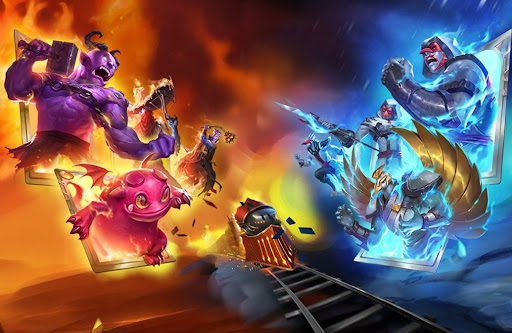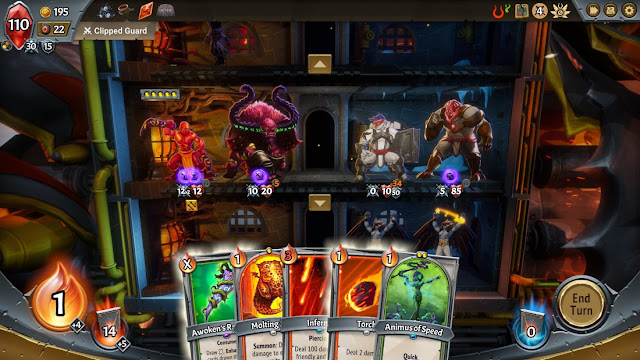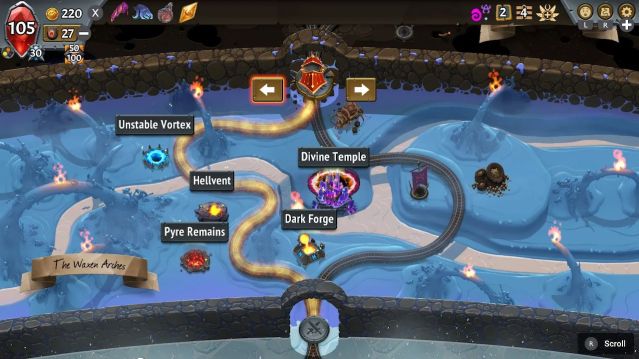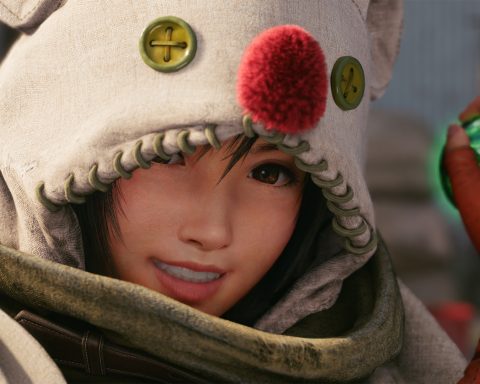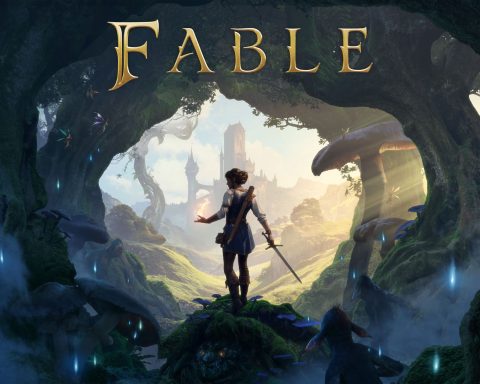“I absolutely love this game and I’m not sure why it’s not getting reviewed anywhere,” writes a user on Metacritic about Monster Train First Class. I can tell you (and them) why: Because it’s so painfully easy to overlook. I very nearly did. I’m glad I did play it, because underneath the painfully generic aesthetics and done to death concept, there’s a very decent and entertaining game to play. Why the developers couldn’t dress it up in a more interesting way is beyond me.
Monster Train First Class is a “roguelike deckbuilding game,” though it’s a poor roguelike at best. There’s permadeath, yes (lose a battle and you have to start from the beginning), and the enemies that you face along the way are pulled from a small pool of random opponents, but that’s about it. What this game actually is is a series of nine stages (with three bosses along the way) in which you need to protect the burning heart of a helltrain from invading hordes of angels. You do this by summoning demons to do the fighting, and casting spells to boost them or assault your opponents. Between battles, you have a limited range of different activities that you can take to upgrade your defences, the train, and your minions. Basically, it’s more like a turn-based tower defence game than a “roguelike”. If you successfully repel all nine waves and defeat the final boss, then congratulations! You’ve had a successful run. Otherwise, you didn’t. Either way, the next time you play you’ll be back with a basic deck and squaring off against the first wave.
The real meat of the game is in the deckbuilding, and it is excellent. The basic deck contains a few weak spells and basic units, but as you win battles and go shopping for upgrades you’ll earn new cards which will be added to your deck, and eventually, it’ll become much more potent. Deck construction is never overwhelming – you’ll earn these cards at a drip-feed rate over the course of a run, so you won’t need to pour over them for hours to determine the optimal deck – but it’s an appealing power creep that happens quickly anyway. With a number of different “decks” to attempt runs with – each with their own strengths and play styles – just about everyone will find that they have a preference.
What I do like about the overall design of Monster Train is that it respects the player’s time. So many roguelikes sell you on the idea that they’re effectively endless as long as you continue to power up at the same rate as your opponent. That’s all well and good, but it can be intimidating to start playing one if you’ve only got a set time to play. With Monster Train, runs last something like an hour (or thereabouts, I didn’t count the exact minutes), and are guaranteed to stop at the end of the ninth wave, successful or otherwise, since that is the end game. There’s a huge amount of replay value thanks to the scoring and levelling system that encourage replay after replay, but it’s portioned out in perfectly reasonable blocks of time.
I also really liked the depth of strategy. Monster Train is unforgiving on mistakes, but if you don’t make the mistakes and work to specific plans when building decks and setting up your defences, then it’s also a game that is happy to provide you with the satisfaction of an easy win. I had a wildly successful run on the second attempt, have won plenty more since, and have also lost many. Every time, every win or loss has boiled down to my own strategic merits and mistakes, and because the roguelike elements are backgrounded, unlike most roguelikes, not once did the randomisation element ruin my attempt. Clearly, a lot of thought went into building the underlying systems of Monster Train so that they would be balanced, rewarding, varied and deep, and the development team should be proud of just how successful they were with this effort.
The time spent between runs is fun, too. Firstly, there are a number of leaderboards so you can see how you compare to your friends, and review your performance across all previous runs. You can monitor your success rate and card collections across all factions, and for completionists, just getting to see everything that this game has to offer is going to be a long and drawn-out process indeed.
I just wish that the game didn’t come across as so utterly generic. Monster Train looks like just about every other western fantasy game produced in recent years. It’s the same cartoonish brightness, the same Warcraftesque character models. Even the interface is the same. I understand that video games are a business and developers need to eat, but I’m getting to the point where I’m overlooking games I would otherwise enjoy – games like Monster Train – because they look like student projects slavishly committed to nailing a brief to produce the “correct commercial aesthetic”. If games are art then I would rather the artists working on the visuals not treat their work as asset creation, because that’s assuredly what has happened here.
Within the incredibly safe aesthetic that the developers have chosen, there is plenty of technical merit. The cards themselves are animated – gorgeously so – and when they’re used to summon monsters to the play area, the 3D models are all rendered nicely. There’s a huge range in terms of both friendlies and enemies, and each of the various factions gives the game a different visual flavour to go with their play style.
Monster Train does indeed deserve to be noticed; it’s the epitome of something that is better than it looks. Underneath that blandly homogenised aesthetic and equally bland promise of yet more roguelike lies a game that offers players some deep, invigorating, challenging and rewarding turn-based strategy. You may well find this one very difficult to put down.

